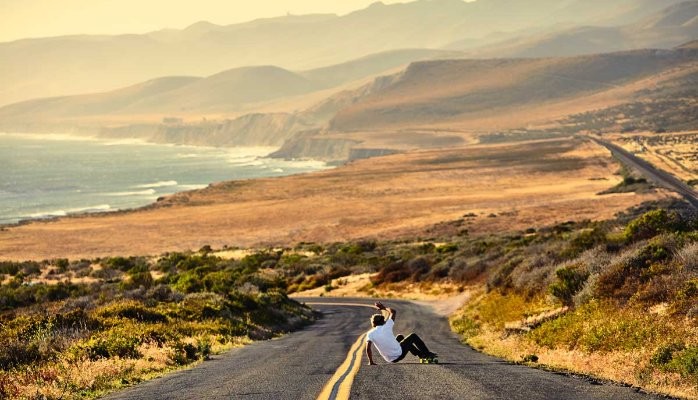
Investors Don’t Have to Choose Between the Planet and Profits: Three Lessons from Patagonia’s Venture Fund
We hear it all the time. A company has a grand vision to make money and use their business to generate environmental and social good. They’re committed to the triple bottom line.
Sadly, all too often, a single bottom line becomes the only line as investors intentionally or unintentionally push companies to focus solely on profit.
At Patagonia, we believe making great products, earning a profit, and protecting our planet are not mutually exclusive objectives. Three years ago, we challenged ourselves to see if it really is possible for investments to deliver true sustainability as well as sound financial returns with our own investment arm – Tin Shed Ventures.
We’ve provided seed funding to startups that are doing incredible things, like making skateboards and sunglasses from recycled fishing nets; using regenerative organic agriculture to combat global warming; and creating safer chemistries for outdoor apparel. The common theme with every Tin Shed portfolio company is that they use business to tackle major environmental problems head-on.
What we’ve learned
While we certainly don’t have it all figured out, we have learned several guiding principles on responsible investing and we’re eager to build on them.
First…Be patient. The traditional model for startup capital is short-sighted and often distracts entrepreneurs from their stated mission. Most venture capital (VC) fund managers face intense pressure to return capital to their investors within timeframes established to facilitate fundraising schedules. VCs put a spotlight on a company’s growth and profitability, given their desire for a quick flip to an IPO or acquisition. That myopic focus on financial returns is taking an enormous long-term toll on our capital markets, our people, and ultimately our planet.
Investors need to practice the discipline of deferred gratification. By giving companies the runway to build the best product and figure out new ways of doing things, investors can expect better long-term financial returns, as well as returns that enrich people and the planet. Though not a mission-driven investor, Warren Buffet sums it up well: “my favorite holding period is forever”.
Second…Measure the impact metrics you care about. Evaluating an investment’s financial returns is relatively straightforward; however, determining an investment’s impact on people and the planet is not.
We frequently speak with fund managers who have social and environmental objectives embedded within their investment thesis. Unfortunately, very few of these managers actually quantify the non-financial impacts of their investments.
Investors pay attention to what they measure. Results should be reported in a balanced scorecard, with an accounting for greenhouse gas emission reductions, waste diversion, water savings, and job creation that receives the same rigor as return on invested capital.
Third…Green investments can deliver above market returns. A 2012 study from Deutsche Bank found that companies with high marks in environmental, social and governance (ESG) criteria outperformed their industry peers. Another study from Harvard Business School conducted over a 20-year period, found that companies with strong sustainability policies and practices outperformed firms with low standards, with a 4.8% difference in return.
While it’s too early in Tin Shed’s history to report on actual returns, we’ve been delighted to see our capital fund the next generation of responsible businesses and yield double-digit financial returns.
The movement is gaining traction
Fortunately, Tin Shed Ventures is not alone.
We’ve partnered with fellow certified B corps, including Kina’ole Capital, New Resource Bank, Beneficial State Bank, and Sungevity, to put thousands of solar panels on roofs and shift our reliance from carbon-based energy.
We’re honored to be part of a coalition of funds like Closed Loop Capital, Radicle Impact, and Fifth Season Ventures who deploy their capital into businesses where financial success creates meaningful environmental and social change.
If investors begin to evaluate the social and environmental facets of companies they invest in – and exercise patience - then they will be rewarded financially over the long haul. Ultimately, such a return accrues to us all.
Creative Technologist/ CEO of ANDesign
7yTalks of the possibility for investments to deliver true sustainability is much needed, now more than ever.
GreenNH3 Zero Carbon Fuel Promotor
7yThey could choose www.greennh3.com and make gobs of money and help the planet. the world's o ly zero carbon fuel at half the cost. government and media are hiding this ..get informed and get involved
Leader, Builder, Strategist, Connector | Beloved Community | BIPOC women’s history | Content creator & author | Driver of impact & world-changing unity
7yWill add to my excruciatingly long reading list!! I do, from my perch, feel extremely pessimistic about the near future, but that's not a convo I wish to engage in too deeply on social media :)
Principal Owner of NW Energy Collaborative
7yYes, yes, yes! The triple bottom line is economic, social and environmental. We must continue to inspire and support businesses that exist beyond their return on assets ratio. If a company is profitable, fills a market demand, and creates jobs; it must be good, right?! But what if the company is treating their workers poorly, not paying a fair wage, exploiting resources that are not renewable, polluting the air and water, and generating massive amounts of greenhouse gases? It is time to reevaluate companies values and impact on the world. This is a critical issue for our society and it starts with leadership. Strategies such as environmental sustainability are no longer optional to companies. Thank you Patagonia for continuing to blaze the trail!